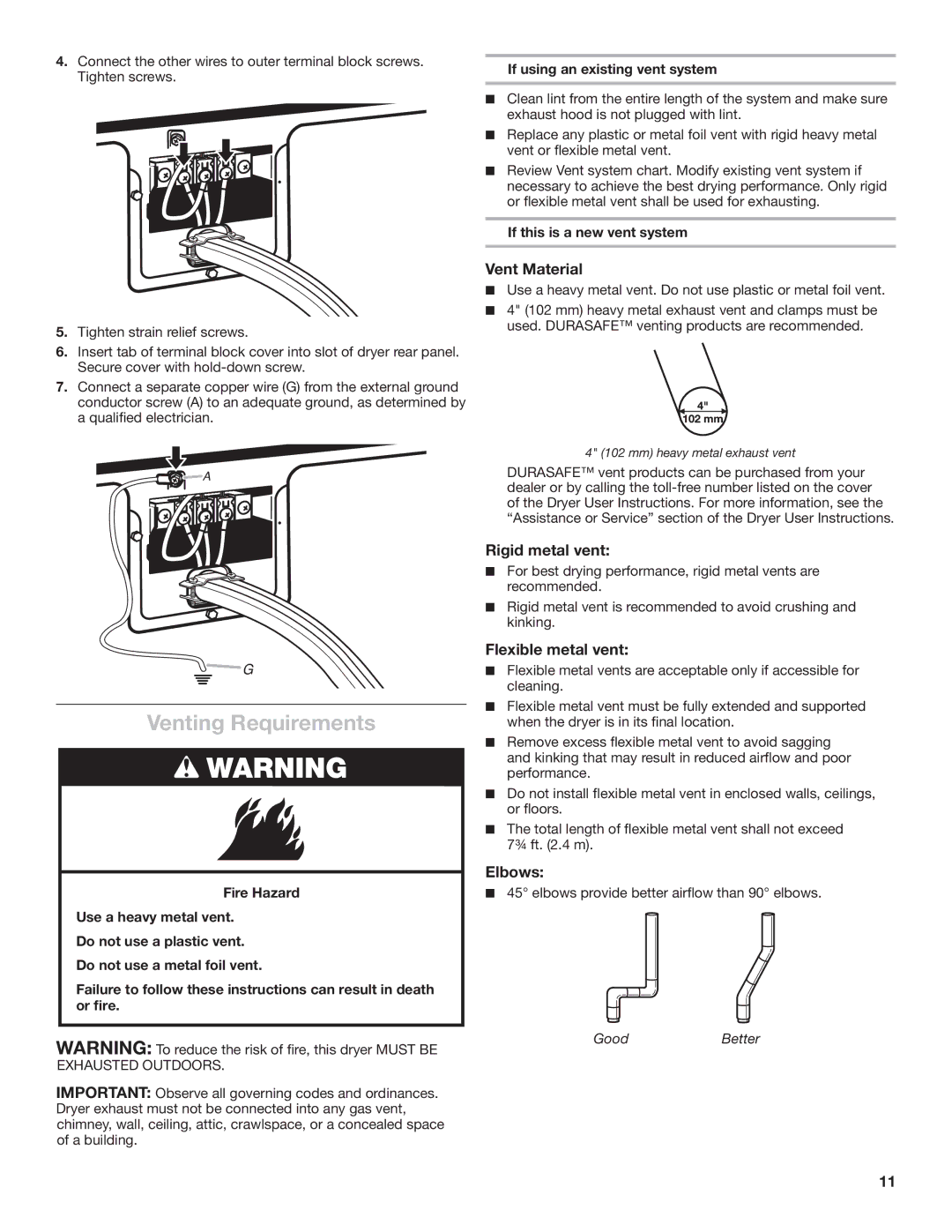
4.Connect the other wires to outer terminal block screws. Tighten screws.
5.Tighten strain relief screws.
6.Insert tab of terminal block cover into slot of dryer rear panel. Secure cover with
7.Connect a separate copper wire (G) from the external ground conductor screw (A) to an adequate ground, as determined by a qualified electrician.
![]()
![]() A
A
If using an existing vent system
■■ Clean lint from the entire length of the system and make sure exhaust hood is not plugged with lint.
■■ Replace any plastic or metal foil vent with rigid heavy metal vent or flexible metal vent.
■■ Review Vent system chart. Modify existing vent system if necessary to achieve the best drying performance. Only rigid or flexible metal vent shall be used for exhausting.
If this is a new vent system
Vent Material
■■ Use a heavy metal vent. Do not use plastic or metal foil vent.
■■ 4" (102 mm) heavy metal exhaust vent and clamps must be used. DURASAFE™ venting products are recommended.
4" (102 mm) heavy metal exhaust vent
DURASAFE™ vent products can be purchased from your dealer or by calling the
![]() G
G
Venting Requirements
![]() WARNING
WARNING
Fire Hazard
use a heavy metal vent. Do not use a plastic vent. Do not use a metal foil vent.
Failure to follow these instructions can result in death or fire.
WARNING: To reduce the risk of fire, this dryer MUST BE EXHAUSTED OUTDOORS.
IMPORTANT: Observe all governing codes and ordinances. Dryer exhaust must not be connected into any gas vent, chimney, wall, ceiling, attic, crawlspace, or a concealed space of a building.
Rigid metal vent:
■■ For best drying performance, rigid metal vents are recommended.
■■ Rigid metal vent is recommended to avoid crushing and kinking.
Flexible metal vent:
■■ | Flexible metal vents are acceptable only if accessible for | ||||
| cleaning. |
|
|
|
|
■■ | Flexible metal vent must be fully extended and supported | ||||
| when the dryer is in its final location. |
|
|
| |
■■ | Remove excess flexible metal vent to | avoid sagging | |||
| and kinking that may result in reduced airflow | and | poor | ||
| performance. |
|
|
|
|
■■ | Do not install flexible metal | vent in enclosed | walls, | ceilings, | |
| or floors. |
|
|
|
|
■■ | The total length of flexible | metal vent | shall not exceed | ||
| 7¾ ft. (2.4 m). |
|
|
|
|
Elbows:
■■ 45° elbows provide better airflow than 90° elbows.
GoodBetter
11
